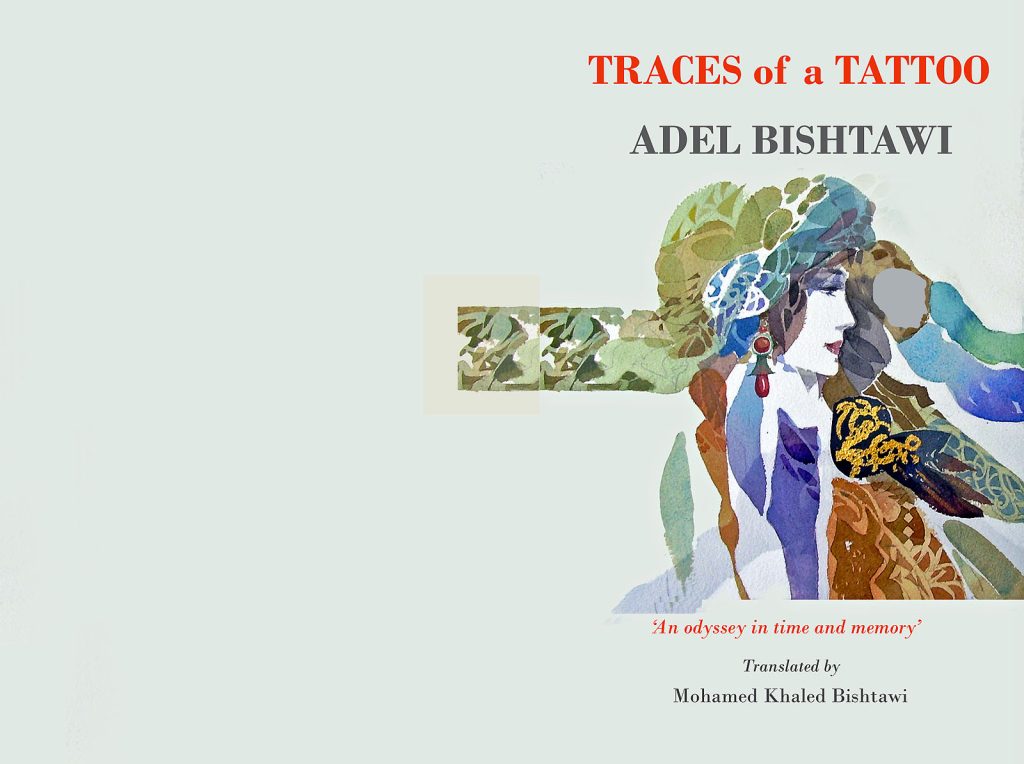
I was absolutely shocked when I discovered in an early translation of Traces of a Tattoo that the translator has decided to spice up the plot a bit by changing the outcome of a crucial scene. “With these changes,” he wrote in an e-mail, “you can call it a a great novel. You may want to consider adding my name as co-author rather than pushing it down almost on the verge of the cropping marks.”
For a strange reason, I can write books in English but I have never been satisfied when translating my own works. It just doesn’t read good enough, so I entrusted my brother, whose English is much better than mine, with the difficult task. Still, some scenes didn’t feel right. Arabic is a very rich language. Many of its mono syllabic root morphemes and bilateral roots were borrowed directly from the primeval nature either in Africa, the original homeland, or in southern Arabia. Words tend to spark rather than express. To compensate the English reader, some flavour had to be added.
Several passages in the English translation are not in the Arabic version. Here is one:
“Aroub sighed deeply as if trying to expel her fears. Random is not chaos. It is just another system far more complex than any other. If it wasn’t a system, why is she with a young man she never met in her life? Could it all be coincidences? What made the mugger pick her mum and not one of thousands of women with handbags who swarm Knightsbridge every day? Hisham was there at the very moment fate struck hard. Was it also a coincidence? No room was available at all hotels. Was that a coincidence too?
Random is not chaos, nor is coincidence. They are natural systems, like any other. Was she guided to Wissam? Why? What is she to do now? What is he to do now?
Could it be fate? What is fate? Would Wissam have begun to like her had she not forced him to like her? He too, indeed, he too.
Aroub shook her head. Fate is made, not ordained. It is a door opened by time for a while and closed again. Fate doesn’t go in with the fated to give them a grand tour of the place inside. It doesn’t provide maps for the roads ahead; it doesn’t give tips on how to approach certain things and avoid others. It just opens the door for the chosen ones; that’s all. It is up to them to decide what to do next. If she wants Wissam, she has to go through that door. If she doesn’t, she can sit on her bed and wait for it to close.
But what is she to do? She had driven away his girlfriend in the holiday season, a season when most people open their hearts wide and their doors even wider and invite those they love to come in and look around. This is what Hisham did. It is true that he tried hard but failed to find a room for them the first night. But he could have found for them a room in another hotel the next day.
He didn’t. He wanted them to stay. The first night was a coincidence. The second was not. It was a door opened for her and her mum, but Hisham wouldn’t let the door close again; not before he tried to recreate his fate.
Wissam, too. He had Arlene, but the moment he breathed the same warm air with her on the stairs, the warm air deposited in his chest by Arlene was expelled instantly and she was completely forgotten.
What a change?”
Here is another vastly changed:
“The telephone rang. Wissam returned to his room and closed the door. He sat on the chair and auditioned the second question. “One, two, three, four, five,” he counted and picked up the handset. “Aroub, my love, how are you?”
“I’m fine now, how are you?”
“Aroub, I’m going to ask you something very important. You don’t have to answer me right away. Take as much time as you want; I’ll wait for your answer as long as you want.”
“I do. What other questions do you want to ask me?”
Aroub heard a skidding noise followed by a bang and a suppressed cry of pain. She screamed: “Wissam! What happened?”
“Aroub, darling,” Wissam said after a while. “You would not believe this. I’ve just fallen off my chair.”
“How?”
“I’m not exactly sure. I thought I heard you say something.”
“What did you hear me say?”
Wissam hesitated. “I thought I heard you say, ‘I do.’ Did you say that?”
Aroub laughed. “I said, ‘I too,’ meaning I too have a question for you.”
“Damn it!” Wissam said, utterly disappointed. “I could have sworn you said something else. I must have wanted to hear those words from you, but it wasn’t to be. Never mind, I’ll ask now, but first give me two seconds to steel myself.”
When he felt ready, he didn’t have the chance to ask. All he could hear on the phone was Aroub’s laughter, getting louder and louder by the second. “You silly boy,” she said in between laughs. “Of course I said, ‘I do’. I love you; what else can a girl in love say?”
Aroub heard a skidding noise followed by a bang and a suppressed cry of pain, a bit louder than before.
“My love,” she screamed with deep concern. “What happened again?”
Here is a third and definitely last passage:
“How am I going to shake hands with the guests? Over one hundred guests have been invited and ten percent more are expected to come without invitation.”
“You should have been a little more careful,” she said, glancing towards the kitchen where the ironing board still stood. “Grabbing the iron like that!”
“The ironing board was blocking the way. If I had known you used the iron, I wouldn’t have carried it.”
“I ironed your shirts. You could have been more careful.”
“How much careful can I possibly be? There’re too many things on my mind. Had I not booked the hall, I would have postponed the wedding a second time.”
“If you do, Maggie will definitely leave you this time. Why should she have to suffer as well?”
“It’s my fault then, is it not? We have known each other for four years now. The only spots I have seen were on her left buttock. Now look at me! I’m covered with them. Maybe I have become allergic to her.”
Alia gasped. “Could that be?”
Samir reflected for a moment and shook his head. “That can’t be. We have slept together four hundred and eighty six times, and nothing happened. It can’t be. I must be allergic to marriage.”
Alia pushed herself back for a better look at the number. “You count these things in America?”
“She does. She’s an accountant, as you know.”
“What for?”
“For tax relief, I suppose. Ask her.”
“Solved then,” she said with a quick laugh. “You can spend the first night of your honeymoon counting the spots and blisters.”
